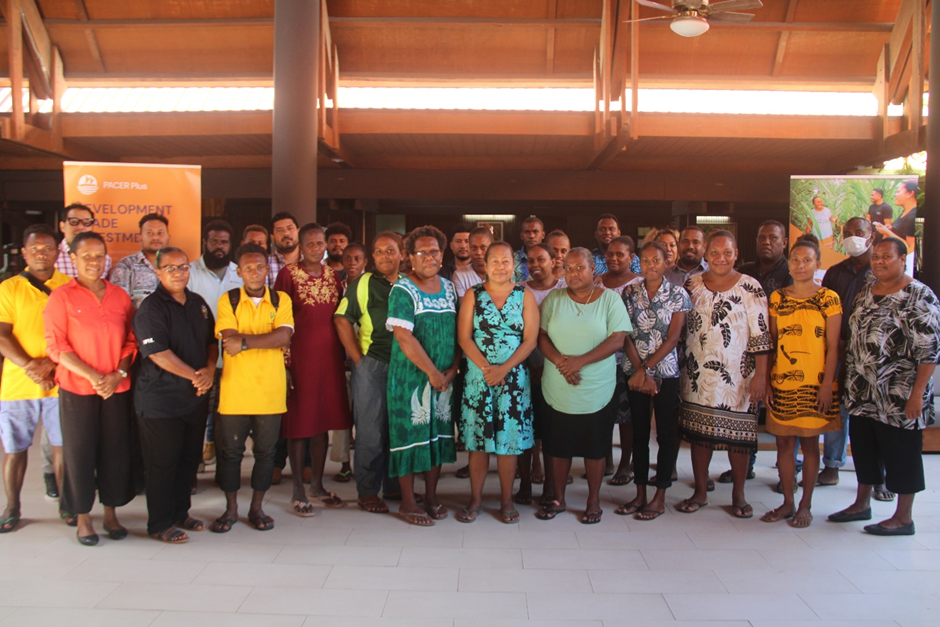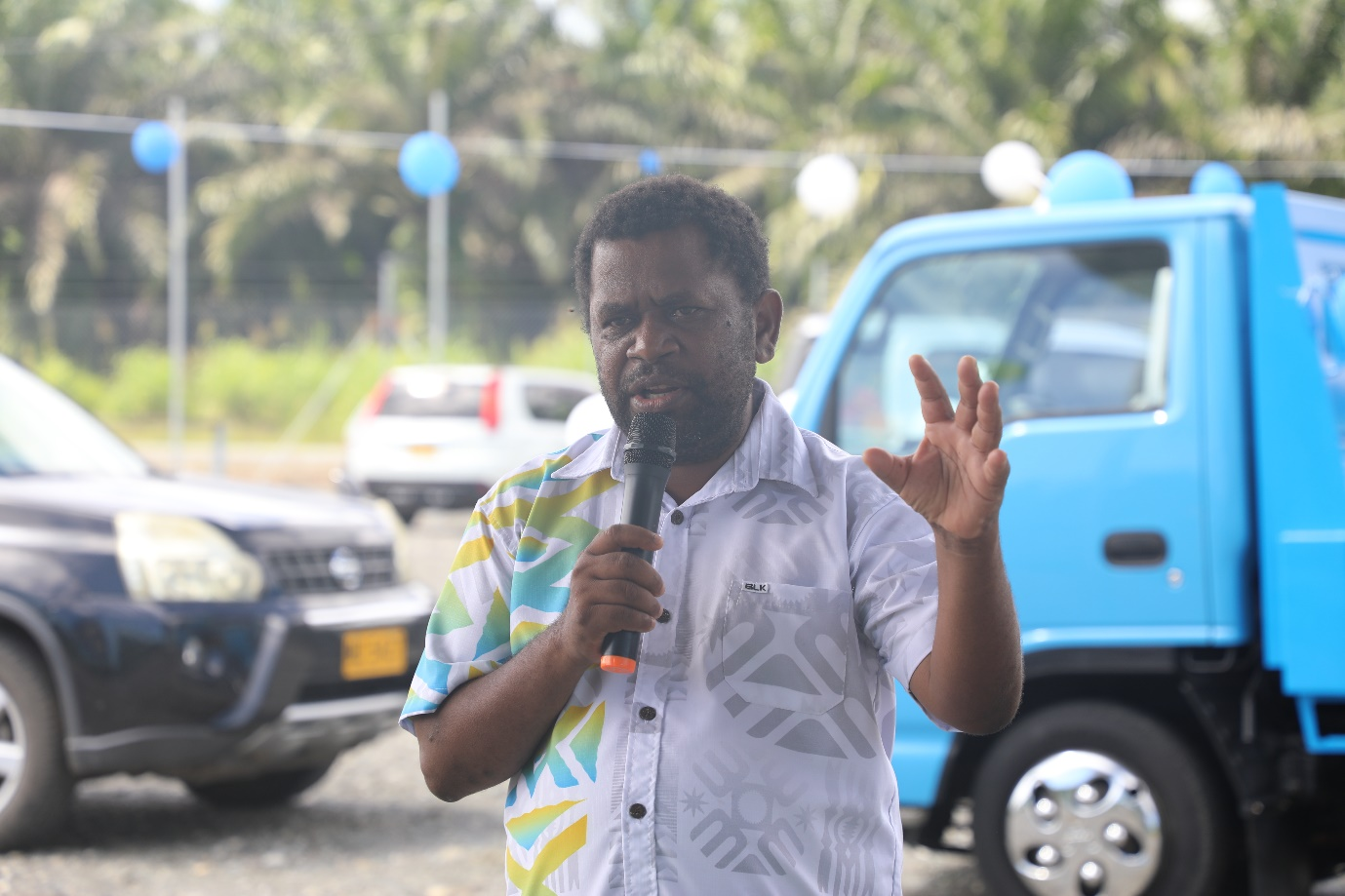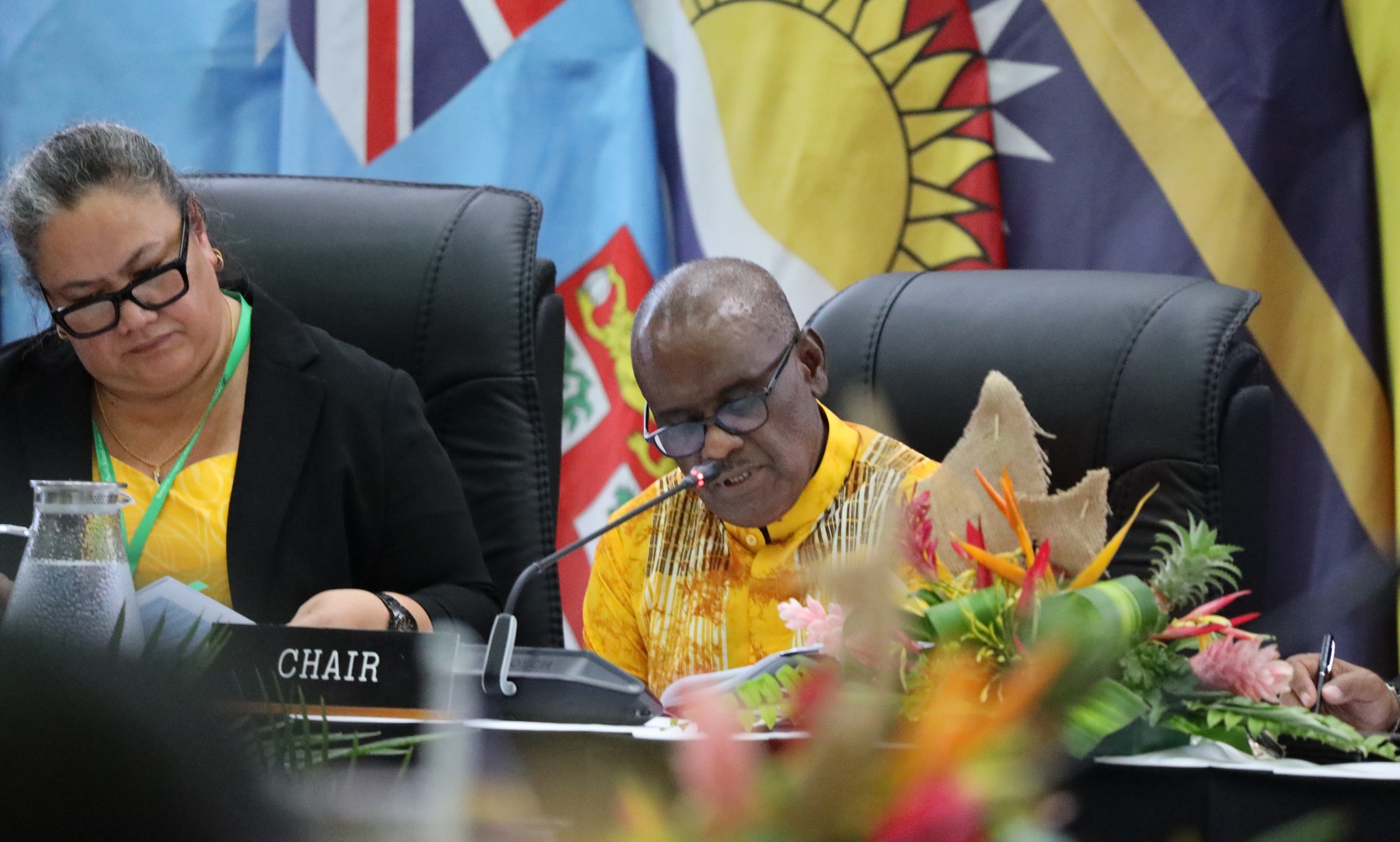Deputy Director of External Trade in the Ministry of Foreign Affairs and External Trade, Jenny Barile (Centre) with participants of the food sampling and testing training.
THE Ministry of Foreign Affairs and External Trade through the Pacific Agreement on Closer Economic Relations (PACER) plus Implementation Unit in partnership with the Ministry of Health and Medical Services conducted a National Training on Food Sampling and Testing for stakeholders on Monday (1 July 2024).
The workshop aims at enhancing the knowledge and skills of the participants from a diverse range of sectors including private businesses, exporters, processors, health inspectors, lab technicians, and representatives from relevant government ministries and departments on the critical aspects of food sampling and testing.
In her opening remarks, the Deputy Director of External Trade in the Ministry of Foreign Affairs and External Trade, Jenny Barile said the workshop underscores the importance of all stakeholder’s collective commitment to ensuring food safety and public health in their trade and business operations.
“This is a step towards strengthening our national food safety program by ensuring that microbiological and chemical analyses of our domestic and export products are conducted accurately and reliably, resulting in greater improvements in our export readiness.
“It is designed to be both informative and practical, with the goal of bridging the gaps between theoretical knowledge and practical application.
Ms. Barile said this workshop is organized in partnership between the Food Safety Unit of the Environmental Health Division together with the National Public Health Laboratory Division (NPHL, both of which sits under the Ministry of Health and Medical Services and the PACER Plus Implementation Unit (PPIU)
On behalf of the Director of External Trade who is the National Focal Point of PACER Plus for Solomon Islands, I must say that I am delighted in the efforts in progressing the implementation of the Agreement through such capacity building initiatives, which speaks volume of our commitment and dedication towards improving our international and domestic trade capacity.
Ms Barile said PACER Plus is deeply committed to increasing and improving trade in the Pacific by reducing trade barriers, supporting parties in meeting market requirements, and facilitating the sharing and exchange of information between parties.
She stressed that such commitment is pivotal in creating a more even playing field for trade, particularly between parties such as Australia and New Zealand.
“By fostering such collaboration and compliance with international standards, PACER Plus not only enhances regional trade but also contributes to the economic growth and development of our nations.
The Food Safety Unit (FSU) is the regulatory body with the mandate under the Pure Food Act 1996 to enforce food safety standards for trading and consumption.
Sampling and testing of food products and environmental samples can provide valuable feedback to an inspector on the safety of an establishment, its operation and/or the food produced.
Due to the gradual increase in the number of exporters and food processors, FSU has requested funds from PPIU to conduct a national workshop targeting exporters, food processors and health inspectors on the importance on food sampling and testing and how it is done.
The workshop also covered field trip visits to a number of food processors in the capital to examine the quality of their products. This practical exercise was designed to enhance participants’ knowledge and experience on various sampling techniques and testing methods to ensure compliance with the Solomon Islands Pure Food (Food Control) Regulations 2010.
The participants also had the opportunity to visit the NPHL and observe firsthand the scientific analysis of the food and water samples collected from the food processors
—MFAET PRESS RELEASE












